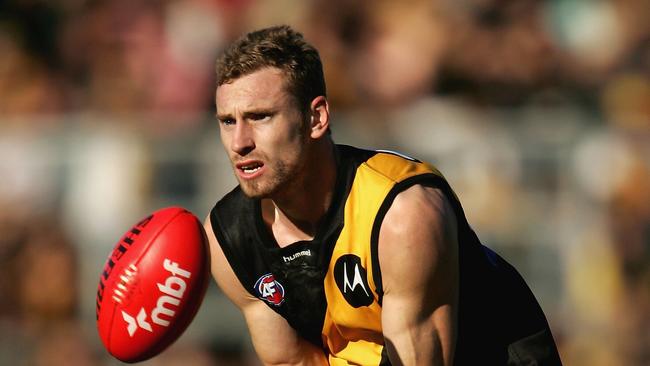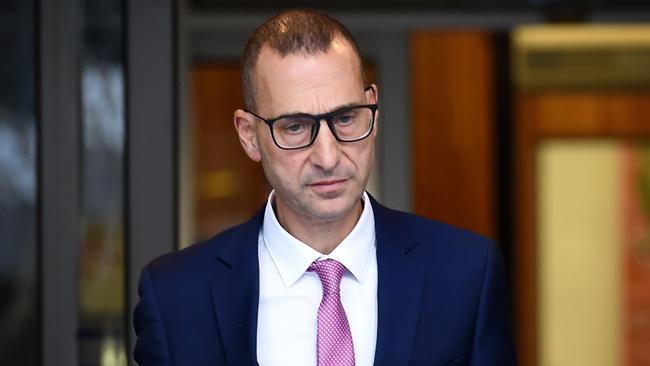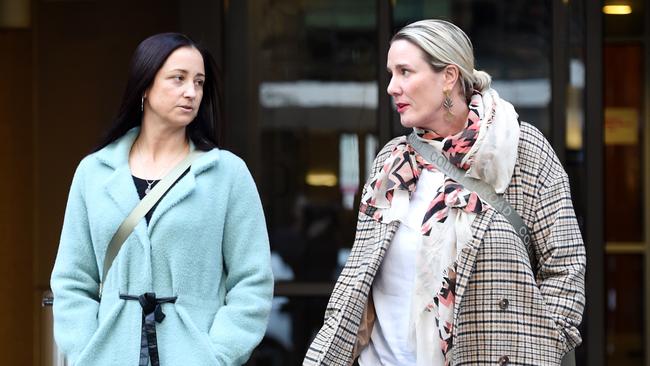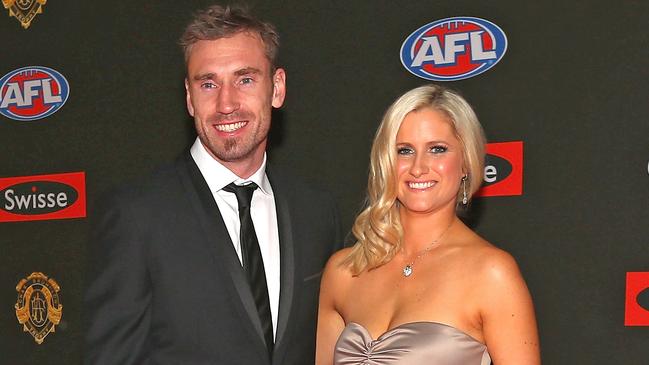AFL to review coroner’s recommendations to slash contact training to protect players from concussion
The AFL says it will take time to review sweeping coroner’s recommendations, including slashing full-contact training, before it implements changes to protect players from concussion.

News
Don't miss out on the headlines from News. Followed categories will be added to My News.
The AFL says it will take time to review sweeping coroner’s recommendations including slashing full-contact training before it implements any changes to protect players from concussion.
State Coroner John Cain on Monday handed down his findings into the death of Shane Tuck, who played 173 games for Richmond before he took his own life, aged 38, after suffering a debilitating brain injury, known as chronic traumatic encephalopathy (CTE), which is linked to repeated head knocks.
Judge Cain made 21 recommendations including the AFL and AFLW reduce full-contact training sessions for the pre, regular and off season by the 2025 pre-season.
In a statement, the league acknowledged Judge Cain’s findings saying it had already made more than 30 changes to on-field rules and match review and tribunal guidelines over the past two decades to further protect players.

“The AFL continues to prioritise the health and safety of our players at all levels of the game and the AFL will now take time to formally review the recommendations of Judge Cain that were largely focused on reducing repetitive head trauma in our game,” it said.
The AFL Doctors’ Association said it was a “contentious issue” to expand powers to independent medical practitioners – but the move would be “a bit of a release”.
“Club doctors know their players best – they have done baseline testing and arguably may be in a better position to assess,” AFLDA president Dr Barry Rigby said.
“Overall, the additional powers for the (medical) spotters ... are seen as being a good thing.”
The AFL’s Chief Medical Officer Michael Makdissi told the inquest earlier this year the league was considering limiting full-contact training but had yet to make any changes and any decision needed to be guided by medical evidence.
Judge Cain also recommended the AFL employ independent medical practitioners at all games to assist club doctors in assessing head injuries.
There should be consensus before players enter concussion protocol but if there is disagreement, Judge Cain said the independent advice should overrule club doctors.
Carlton captain Patrick Cripps said limiting full-contact training was “always a tricky question” but players believed clubs were doing all they could to guard against concussions.
“I think that question is going to be getting asked for as long as this game goes but I feel like every year the clubs and the AFL are working really hard together to make sure that we not only play a great brand of footy but also that our health is number one as well,” he said.
Judge Cain also recommended independent concussion spotters, who watch games from the media box, be empowered to remove players from the field for medical assessment.

Other recommendations include the AFL increase player and community awareness of head trauma, it develop standardised baseline testing and it encourages players to donate their brain for medical research.
Judge Cain commended the AFL for implementing the Brain Health Initiative, a $25m program over the next decade which aims to monitor the brain health of players over their career.
Dr Makdissi said the AFL had made more than 30 regulation changes since 2005 to reduce the risk of head trauma, including the banning of boxing training, rule changes to tackling and upgrading impact categorisations based on severity of injury.
The inquest heard Tuck began showing changes in his personality as early as 2006 – his third season playing AFL.
Tuck’s widow Katherine, who withdrew from the inquest earlier this year, reported her husband would head straight home after games, go to sleep early and became “obsessive” with his health and fitness.
In 2010, Tuck began treatment for depression, anxiety and heart palpitations and disengaged with his children.
Tuck took up boxing after his AFL retirement in 2013, suffering a knockout in his first professional match that saw him hospitalised.

Months later, he attended an emergency department in Adelaide, where he and his family had moved after his AFL retirement, suffering low mood, anxiety and suicidal thoughts.
But follow-up scans would clear him to return to boxing and he would have three more bouts.
In mid-2018, Ms Tuck noticed her husband’s mental state decline significantly, reporting he spoke about voices in his head telling him not to eat.
The following year, Tuck was admitted to a psychiatric unit after an overdose and while suffering auditory hallucinations.
In April 2020, Tuck was admitted under similar circumstances to Casey Hospital in Melbourne, where he was placed on a treatment order prohibiting him from leaving.
He was discharged the following month during a period of stability before he took his own life at his parents’ home in Berwick on July 20, 2020.
Counsel Assisting the Coroner Gideon Boas told the inquest the incidence of CTE, which can only be definitively diagnosed after death, was not known but it was believed up to 17 per cent of people who experienced repeated concussion developed the progressive brain disease.
He said an estimated 100,000 sport-related concussions occur in Australia each year, with many more not reported.
The AFL and AFL Players’ Association were contacted for comment.
More Coverage
Originally published as AFL to review coroner’s recommendations to slash contact training to protect players from concussion




